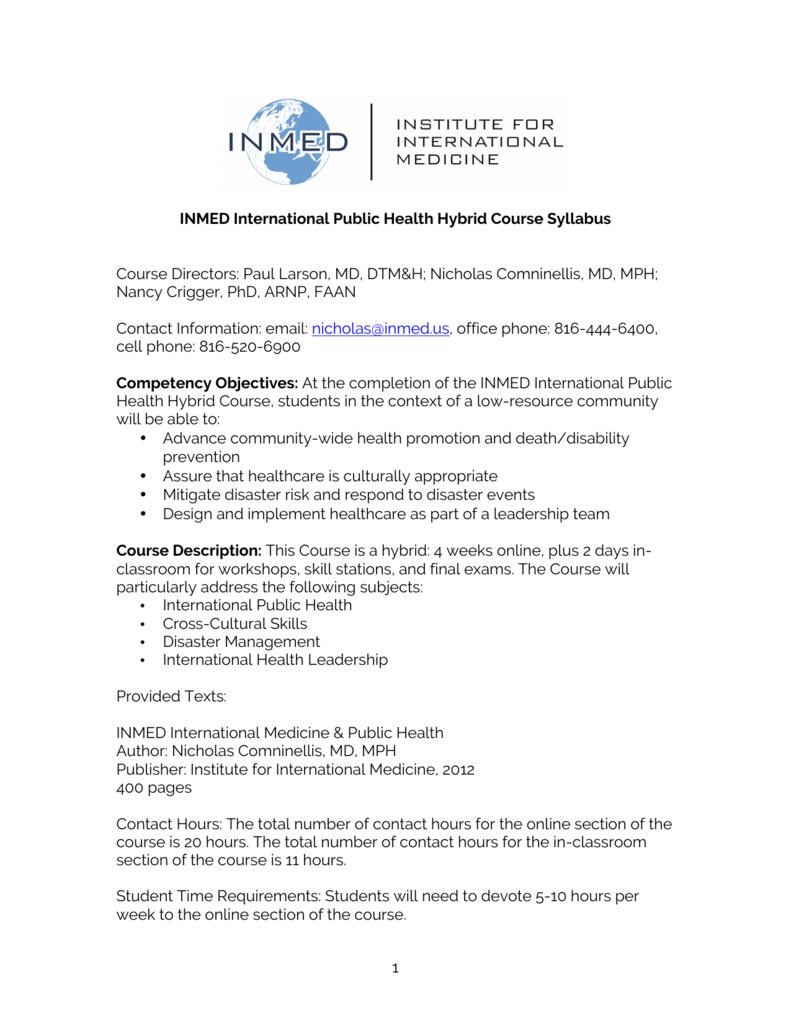- Sample Training Syllabus Template
- Sample Course Syllabus
- Course Syllabus Examples
- Sample Syllabus Template


Box 3649 Fort Smith, Arkansas 479-788-7000. Course Syllabus Template. Instructions for using this Course Syllabus Template. The syllabus is broken into discrete sections, which can be rearranged, removed, or modified to best fit your course and teaching style. In order to keep the syllabus accessible, the style (headings, paragraphs etc.) should be maintained.
Course Syllabus & Information |
Jan 21, 2016 The syllabus also lists a few additional materials that may be accessed online for free. Additional related materials will be made available as handouts. The course pack includes most published materials you will need to purchase, such as cases and articles. To access the course pack: Register for the course through the Harvard Extension School. Course Syllabi Result: Course: ABDR1419 Syllabus Date: 0107 Date Uploaded: 3/17/2010 Syllabus Type: WE Link: Click: Course Syllabi Result: Course: ABDR1441 Syllabus Date: 0107 Date Uploaded: 11/2/2007.
The United States is becoming increasingly diverse and the world increasingly globalized. The central focus of the course is on the links between diversity and psychological processes at individual, interpersonal, and international levels. We consider several basic questions, including: What is diversity? How do race, nationality, and religion influence individuals? What impact does diversity have on cross-group relationships? How is diversity related to people's perceptions of fairness and justice? What is the relevance of people's perceptions of fairness and justice to social problems and social change? Does respect for diversity promote peace and positive change? Much research has addressed these questions, and we closely examine the evidence that has emerged so far.
Prerequisites: previous coursework in psychology is helpful but not required. Prof. Weissmark and Teaching Fellow Jason Ri |
Evaluation Comments from Former Students From RateMyProfessor.com: - Professor Weissmark is professional in her teaching and shares her knowledge selflessly. Her lectures were intellectual and enlightening as well as fun. The pacing of her lectures were properly scheduled to kept my interest in the topics. She is also inspiring, humorous and witty in her lectures. It is an amazing journey for the course PSYC-E 1507. - Professor Weissmark is a great professor who is invested in creating learning friendly environment open to discussion and exploration. She is a fair grader and excellent lecturer as well. I would recommend everyone interested in gaining practical insight into psychological diversity to take her class -it was a blast. - After taking Prof. Weissmark's class, I found I had a foundational knowledge that propelled my interest in diversity and multiculturalism into grad school. I am now pursuing the subject matter in my professional life. This class helped start me on this path. - Professor Weissmark is extremely clear in her teachings, and brings the theme and message of the class across very well. This is a life-changing course for many of its alumni and it offers a fresh pair of lenses to view the world with. I highly recommend this course. |
The syllabus page shows a table-oriented view of the course schedule, and the basics ofcourse grading. You can add any other comments, notes, or thoughts you have about the coursestructure, course policies or anything else.
To add some comments, click the 'Edit' link at the top.
Course Summary:
| Date | Details |
|---|
The Course Syllabus
Sample Training Syllabus Template
All instructors are required to inform students concerning the requirements, standards, objectives and evaluation procedures at the beginning of each course. This information must be conveyed to students either in writing or digitally.
A syllabus is an outline of the rules by which a class is to be conducted. It holds the status of a legal contract. For this reason, you should spell out policies on any issues that bear on the students’ responsibilities. Providing this information to all students at the beginning of the course is not only fair to the students, but is essential to your interests in the event of a grade appeal.
Sample Course Syllabus
Course documentation should be disseminated, on paper and/or on Canvas to students when the course begins. Changes to the syllabus, should they arise, need to be announced well in advance of the change and confirmed in writing if possible.
Documentation for courses taught must include the following information about the course:
- Instructor name, office location, contact information (telephone number and/or email address), office hours
- Required materials, including any texts and personal equipment such as clickers, calculators, software and related technology.
- Course prerequisites
- Special policies for the course, if any (e.g. a policy that collaboration is permitted on take home work; a policy that calculators can be used on exams; penalties for late work)
- A list of papers, exams, and other assessments that will contribute to the students’ grades, along with the exact or approximate value of those assessments, either in points or percent of total grade. Repeated small assessments, such as homework or quizzes, can be considered as one item in the list of assessments.
Other Useful Information (may be included at the instructor’s discretion).
- Projected schedule of assignments, quizzes, tests and other course work
- Information about how student work will be graded (possibility of scaling grades at instructor’s discretion)
- An exact or approximate grading scale, for courses that are graded on a point system
- Overall course objectives/expected learning outcomes for the specific course
- Policies regarding expected classroom behaviour
- Policies on academic honesty
- Required extracurricular activities; any special materials required for the class
- Student Resources (DRC, EIO, etc.)
- A statement is permissible indicating that: “the information contained in the course syllabus, other than the grade and absence policies, may be subject to change with reasonable advance notice, as deemed appropriate by the instructor”.
Resources to support student success
Recommended descriptions of Disability Resource Centre, Equity and Inclusion Office, Health & Wellness, Student Learning Hub
Course Syllabus Examples
Checklists
Sample Syllabus Template
| Syllabus Checklist |
| Course Preparation Checklist |
